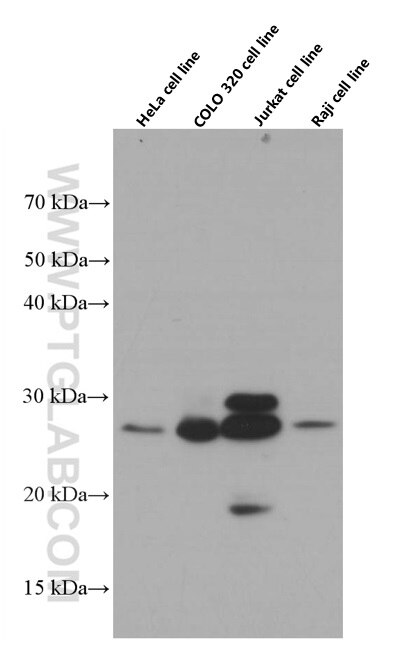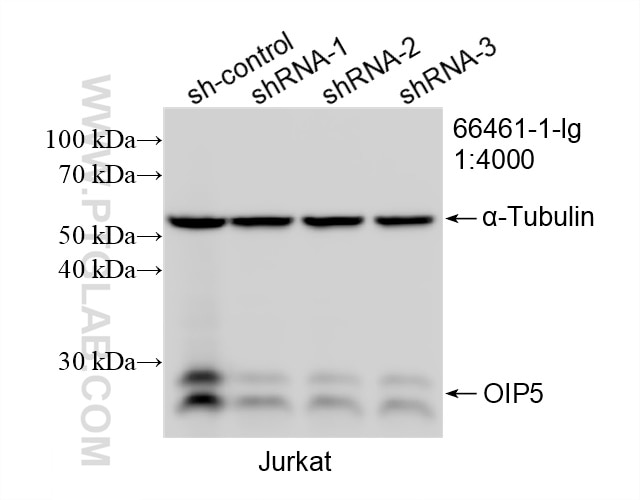- Phare
- Validé par KD/KO
Anticorps Monoclonal anti-OIP5
OIP5 Monoclonal Antibody for WB, ELISA
Hôte / Isotype
Mouse / IgG2b
Réactivité testée
Humain
Applications
WB, ELISA
Conjugaison
Non conjugué
CloneNo.
1E9B5
N° de cat : 66461-1-Ig
Synonymes
Galerie de données de validation
Applications testées
| Résultats positifs en WB | cellules HeLa, cellules COLO 320, cellules Jurkat, cellules Raji |
Dilution recommandée
| Application | Dilution |
|---|---|
| Western Blot (WB) | WB : 1:5000-1:50000 |
| It is recommended that this reagent should be titrated in each testing system to obtain optimal results. | |
| Sample-dependent, check data in validation data gallery | |
Informations sur le produit
66461-1-Ig cible OIP5 dans les applications de WB, ELISA et montre une réactivité avec des échantillons Humain
| Réactivité | Humain |
| Hôte / Isotype | Mouse / IgG2b |
| Clonalité | Monoclonal |
| Type | Anticorps |
| Immunogène | OIP5 Protéine recombinante Ag2790 |
| Nom complet | Opa interacting protein 5 |
| Masse moléculaire calculée | 229 aa, 25 kDa |
| Poids moléculaire observé | 25-30 kDa |
| Numéro d’acquisition GenBank | BC015050 |
| Symbole du gène | OIP5 |
| Identification du gène (NCBI) | 11339 |
| Conjugaison | Non conjugué |
| Forme | Liquide |
| Méthode de purification | Purification par protéine A |
| Tampon de stockage | PBS avec azoture de sodium à 0,02 % et glycérol à 50 % pH 7,3 |
| Conditions de stockage | Stocker à -20°C. Stable pendant un an après l'expédition. L'aliquotage n'est pas nécessaire pour le stockage à -20oC Les 20ul contiennent 0,1% de BSA. |
Informations générales
OIP5, also named as IS18B and CT86, is required for recruitment of CENPA to centromeres and normal chromosome segregation during mitosis. It is over expressed in the majority of primary lung and esophageal cancers. OIP5 is a promising target for developing new prognostic biomarkers and anti-cancer drugs.
Protocole
| Product Specific Protocols | |
|---|---|
| WB protocol for OIP5 antibody 66461-1-Ig | Download protocol |
| Standard Protocols | |
|---|---|
| Click here to view our Standard Protocols |



